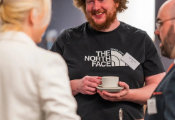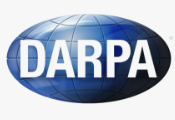It is difficult to imagine a world more dynamic and at the same time more inaccessible than the inside of a proton. The complex interactions of its constituent quarks, gluons and the constantly ‘churning’ sea of virtual particles can now be coherently described thanks to the skilful use of the tools of quantum information theory and the phenomenon of quantum entanglement. The new, more than hitherto universal formalism has made it possible, for the first time, to explain data from all available measurements related to the scattering of secondary particles produced during deeply inelastic collisions between electrons and protons. The team responsible for the achievement include theorists from Brookhaven National Laboratory (BNL) and Stony Brook University (SBU) in New York, Mexico's Universidad de las Americas Puebla (UDLAP) and the Institute of Nuclear Physics of the Polish Academy of Sciences (IFJ PAN) in Cracow.


























